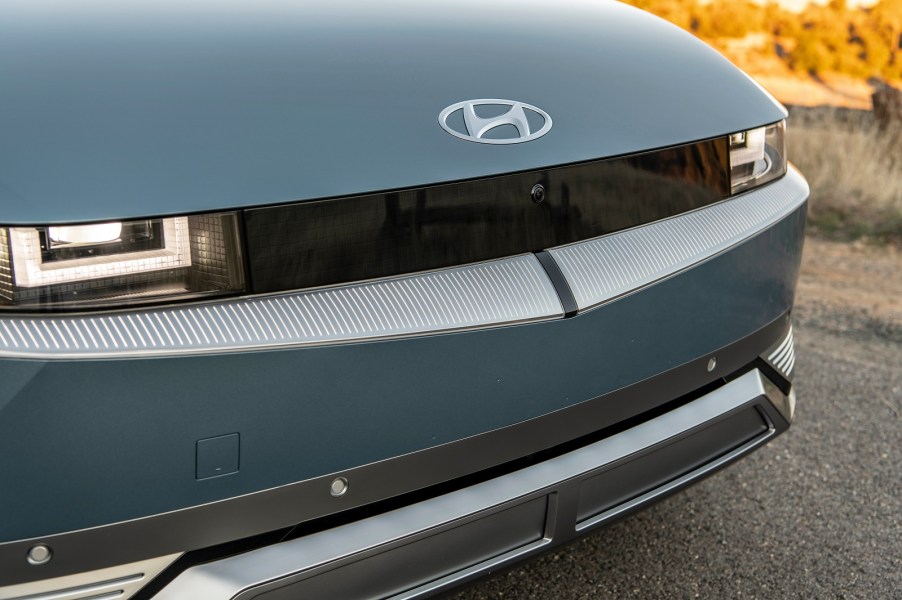
1 of Hyundai’s EVs Has an Alarming Number of Complaints
The National Highway Traffic Safety Administration – NHTSA to its friends – is the top regulating body for automotive matters in the US. Among its many services, it takes customer complaints about vehicles and maintains a database. Here, we look at one set of Hyundai’s EV complaints.
In many cases, the vehicles with the most complaints are predictable. Models from recall-plagued Tesla turn up a lot. So do entry-level oddities like Toyota’s Corolla Cross.
That makes the poor performance of the Ioniq 5 something of a surprise. Neither cheap nor produced by an inconsistent brand, what on Earth went so wrong with Hyundai’s electric crossover?
The Ioniq 5 has the 2nd most complaints out of any Hyundai

With 80 customer complaints, the 2023 Ioniq 5 is Hyundai’s second most complained-about car this year, edged out only by the less-than-beloved 2023 Palisade SUV. Clocking 135 complaints, at this point, the Palisade is a fairly well-known disaster. The Ioniq 5, however, is an unassuming little electric crossover with an MSRP of $41,450 and got good early reviews.
Making sense of these findings
Many complained-about cars really only have one problem, a particular deal-breaking failure that almost all their complaints are about. The 2023 Bronco, for instance, has windshield wipers with an unfortunate habit of turning themselves off in the rain. The Honda HR-V’s back window tends to shatter on a sharp bump.
For the Ioniq 5, the problem area is the ICCU. Short for Integrated Charging Control Unit, the ICCU is meant to be an engineering showpiece for Hyundai. This single integrated system is meant to power the main and spare batteries as well as the Ioniq’s Vehicle-to-Load system, which allows the charging of other devices from the car batteries. It is, as the name suggests, Integrated and connected to the majority of the Ioniq 5’s vital systems.
The trouble with any system integrated into every part of a machine is that when it breaks, so does everything else. As reported by Auto Body News, that’s the story of the ICCU. Its signature failure is a sudden pop, a dashboard warning, and a total loss of onboard power. That’s more than enough for a complaint or two, but it’s only the start of the ICCU’s problems. It glitches easily. This faultiness feeds inaccurate signals to the engine, causing unexpected stops. It loses power. In short, it’s borked.
Should you avoid the 2023 Hyundai Ioniq 5 based on this information?
If the problem were just the 2023 Ioniq 5’s ICCU, the Ioniq 5 could remain a good option for drivers seeking an inexpensive, versatile EV.
Two facts argue against that. First, it’s not just 2023. This fault has been reported as far back as the 2022 model year and occasioned a full NHTSA investigation, and as of December 2023, it’s still happening. That’s unacceptable.
Second, complaints mention a worrying number of other issues. Drivers report brake light failures, inaccurate engine lights, error messages, and other glitches.
While the Ioniq 5 is award-winning and could prove a wonderful car for most, it has issues to address that are disruptive to a pleasant owner experience.
Source: NHTSA





